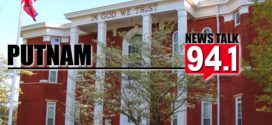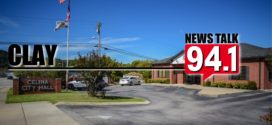Cookeville City Council passed the first reading of its new hotel-motel tax Thursday.
Yash Tanwar owns Cookeville’s Best Western and the new Holiday Inn development. He expressed concern during the council meeting over how the tax would affect his businesses and others.
“It’s going to put a lot of pressure on our ADRs, by which we mean our average daily rates,” Tanwar said. “We don’t have enough market [where] we can get so many people to fill these rooms in our hotels. As I’ve heard, there are another two hotels which are in the pipeline. That’s going to put an additional burden on the customer themselves.”
Tanwar said customers may see higher rates and be less inclined to stay in Cookeville.
“The transient people, they may not stop for the amount of taxes we’re going to put in,” Tanwar said. “In the end, to a customer, this means that the hotel is collecting [the tax]. People don’t see that. For them it’s like part of the rate they pay per night.”
Councilman Charles Womack said the revenue generated from the tax could potentially benefit hotels in the city.
“I think what we can do with some of the proceeds of the tourism tax is we can use it for marketing,” Womack said. “To market this area, the hotels, the motels, and I think we can offset some of the hurt you might suffer from having the tax with more people coming to use the rooms.”
According to City Manager James Mills, lodging owners would receive two-percent of the funds they collect as reimbursement.
Councilman Eric Walker said Cookeville’s close proximity to popular state parks and other tourist attractions will help alleviate the issues hotels may face with the new tax.
“We’ve got a beautiful area. We’re at the heart of the Upper Cumberland, there’s a lot of waterfalls, hiking trails, and state parks,” Walker said. “We can really capitalize on that in building Cookeville into a tourism region and I hope we can use this tax for that reason.”
Councilman Mark Miller said the continued economic growth of Cookeville and interested corporate entities may also help hotels by providing more customers.
“You get a lot of heads in beds because of corporate development,” Miller said. “That’s something I really think we should focus on, is we make sure we put a sizable portion of this into our economic development fund for that reason.”
State statute requires hotel-motel tax revenue be spent on promoting tourism and/or economic and community development. Mills reports the tax is expected to generate approximately $600,000 annually.
Council members will consider the tax on second-reading during their next meeting Aug. 1. If approved, the city would begin collecting the tax Sep. 1.
 News Talk 94.1/AM 1600 Where The Upper Cumberland Talks
News Talk 94.1/AM 1600 Where The Upper Cumberland Talks







